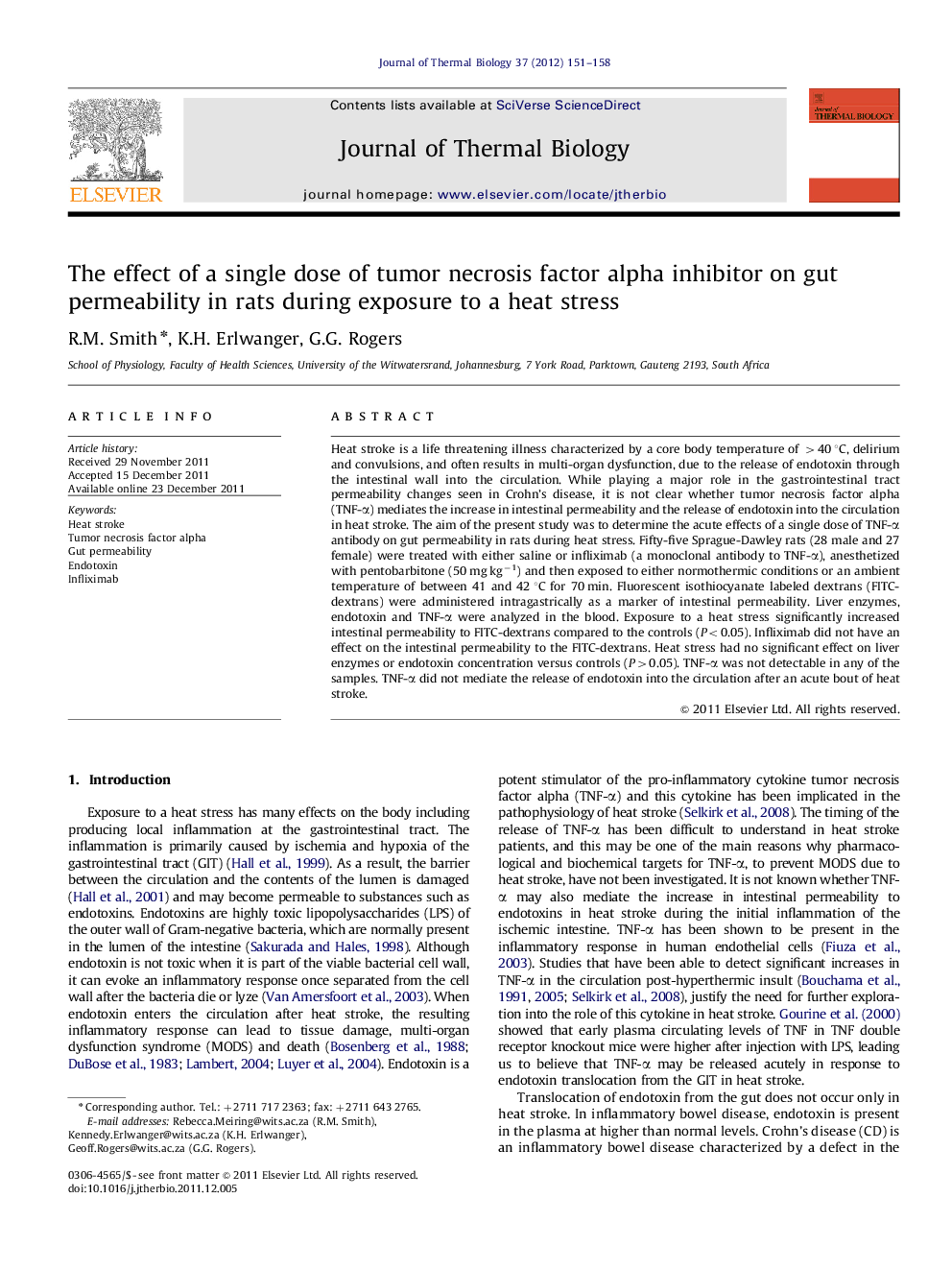| Article ID | Journal | Published Year | Pages | File Type |
|---|---|---|---|---|
| 2843098 | Journal of Thermal Biology | 2012 | 8 Pages |
Heat stroke is a life threatening illness characterized by a core body temperature of >40 °C, delirium and convulsions, and often results in multi-organ dysfunction, due to the release of endotoxin through the intestinal wall into the circulation. While playing a major role in the gastrointestinal tract permeability changes seen in Crohn's disease, it is not clear whether tumor necrosis factor alpha (TNF-α) mediates the increase in intestinal permeability and the release of endotoxin into the circulation in heat stroke. The aim of the present study was to determine the acute effects of a single dose of TNF-α antibody on gut permeability in rats during heat stress. Fifty-five Sprague-Dawley rats (28 male and 27 female) were treated with either saline or infliximab (a monoclonal antibody to TNF-α), anesthetized with pentobarbitone (50 mg kg−1) and then exposed to either normothermic conditions or an ambient temperature of between 41 and 42 °C for 70 min. Fluorescent isothiocyanate labeled dextrans (FITC-dextrans) were administered intragastrically as a marker of intestinal permeability. Liver enzymes, endotoxin and TNF-α were analyzed in the blood. Exposure to a heat stress significantly increased intestinal permeability to FITC-dextrans compared to the controls (P<0.05). Infliximab did not have an effect on the intestinal permeability to the FITC-dextrans. Heat stress had no significant effect on liver enzymes or endotoxin concentration versus controls (P>0.05). TNF-α was not detectable in any of the samples. TNF-α did not mediate the release of endotoxin into the circulation after an acute bout of heat stroke.
► TNF-α plays a role in the pathophysiology of heat stroke and is involved in the inflammatory response due to GIT leakage. ► Unknown whether a monoclonal antibody to TNF-α has the ability to prevent this inflammation and thus the associated leakage. ► This study further emphasizes the need to fully understand the role of TNF-α in heat stroke.
